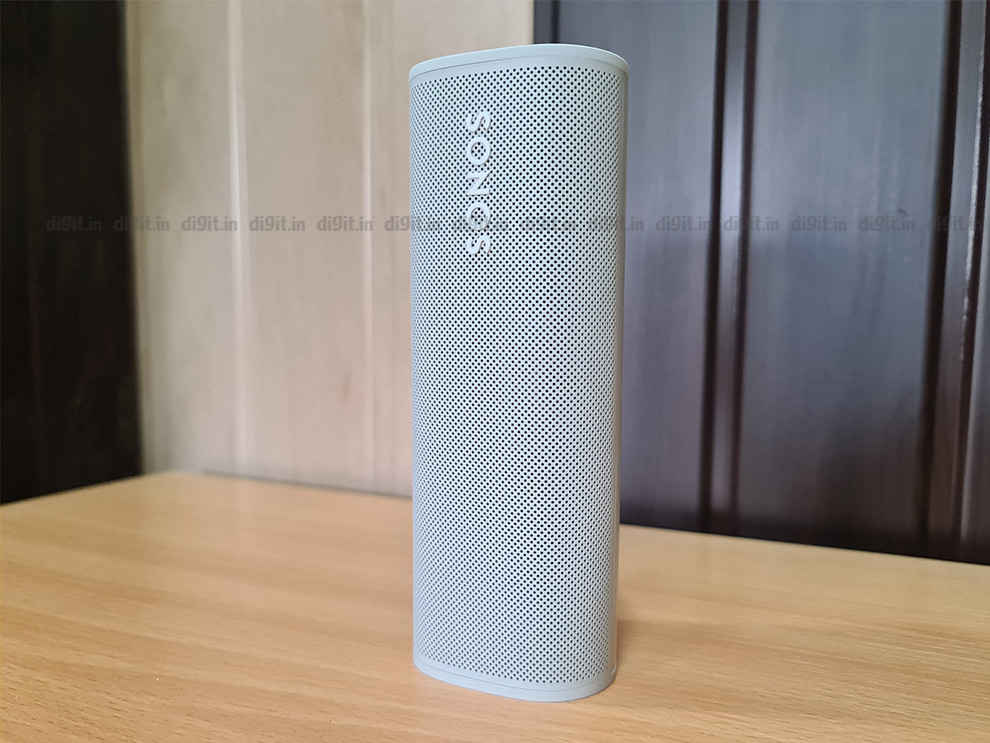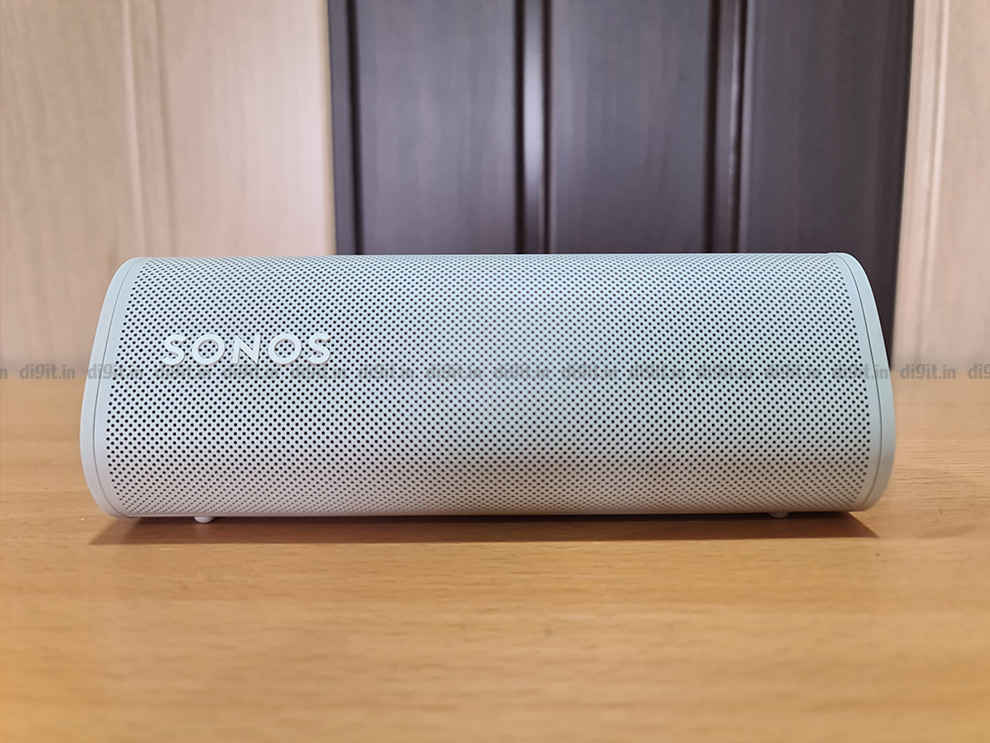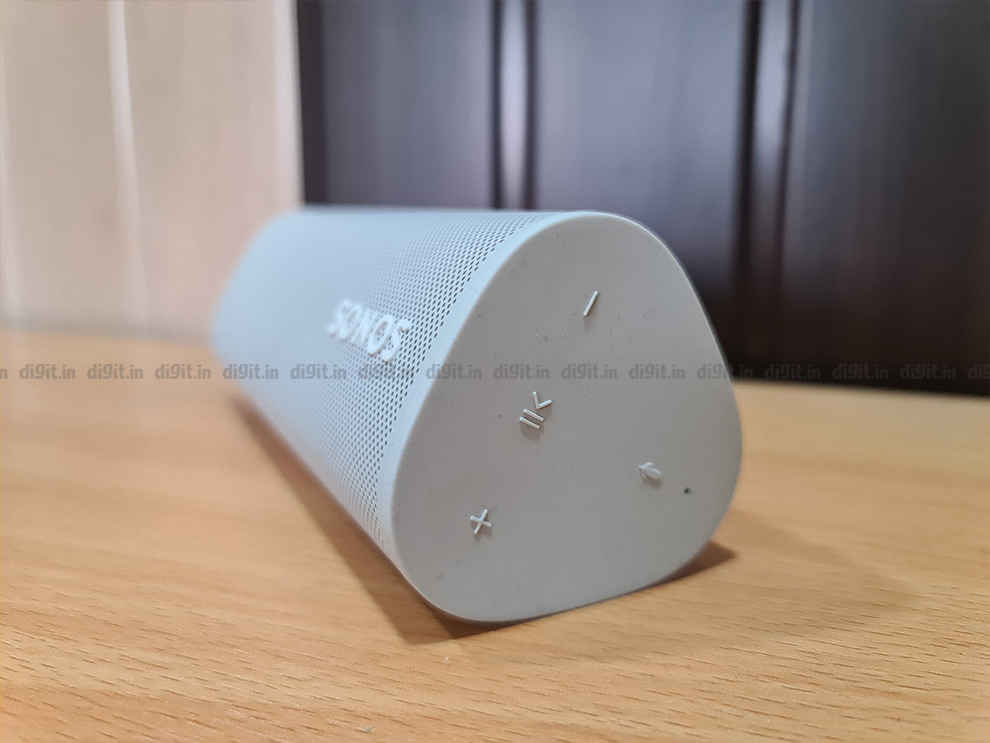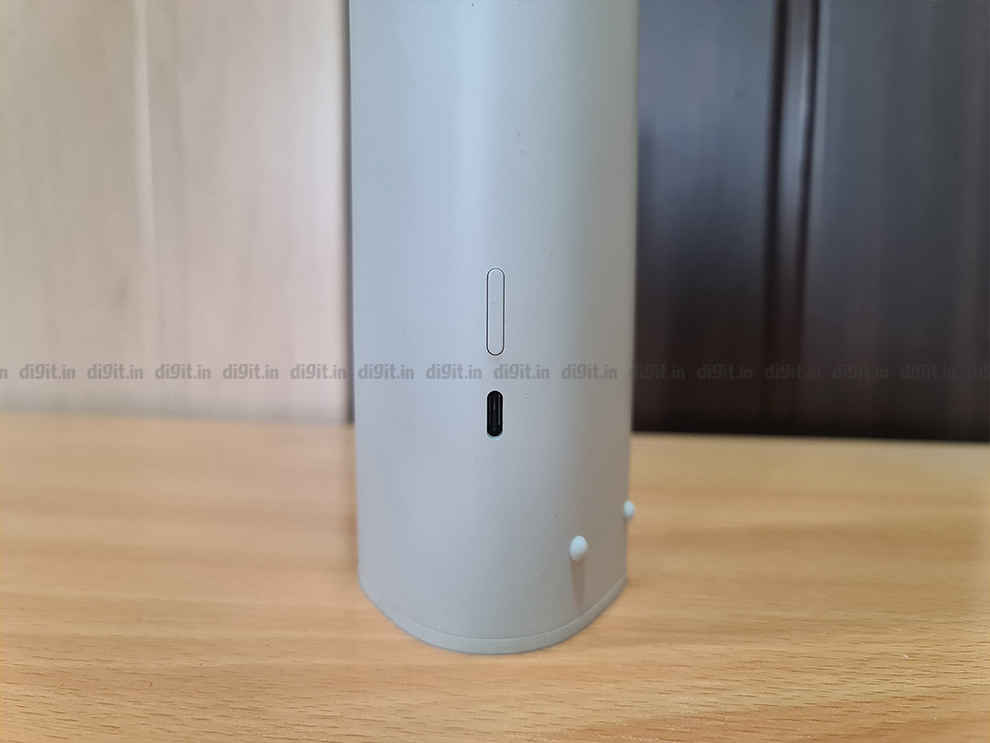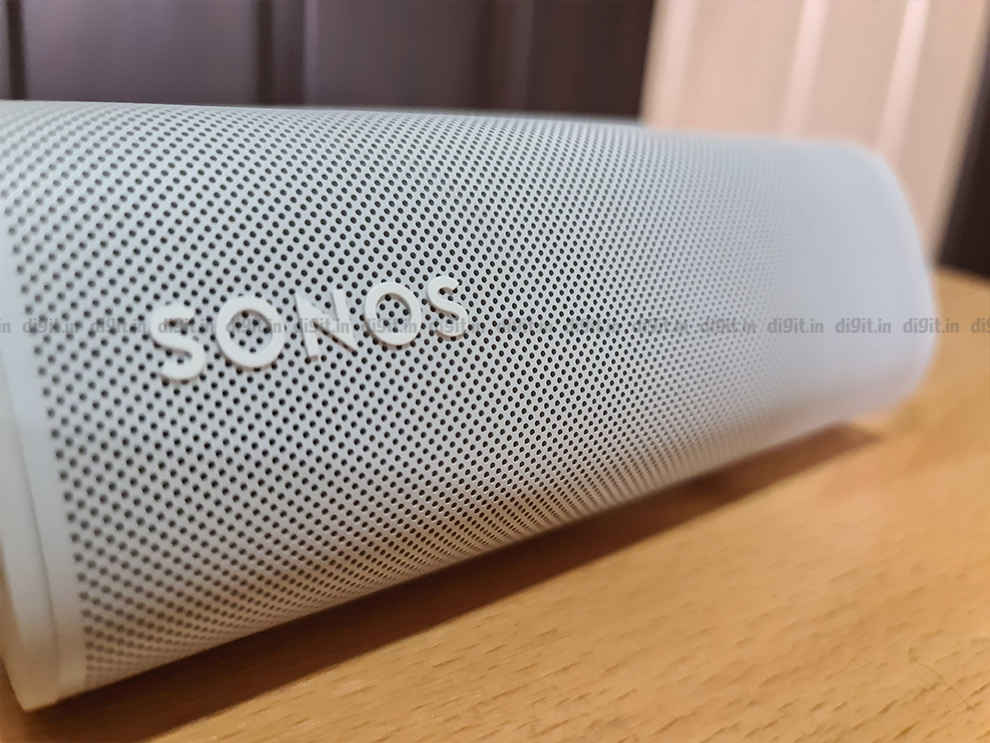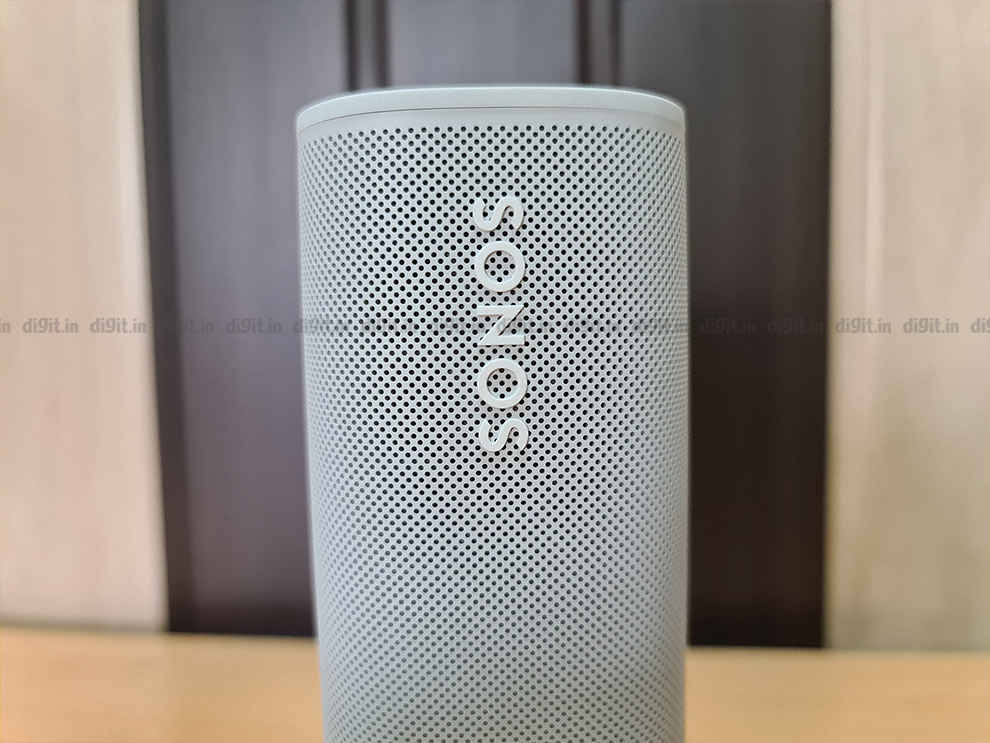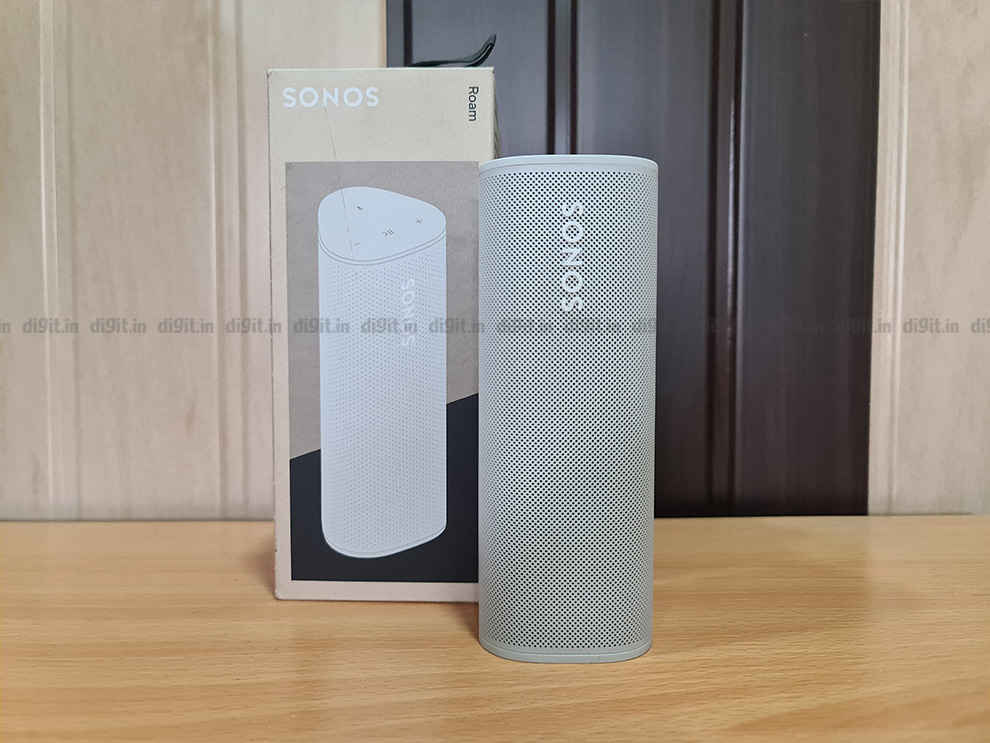Sonos Roam Review : One of the better-sounding portable speakers
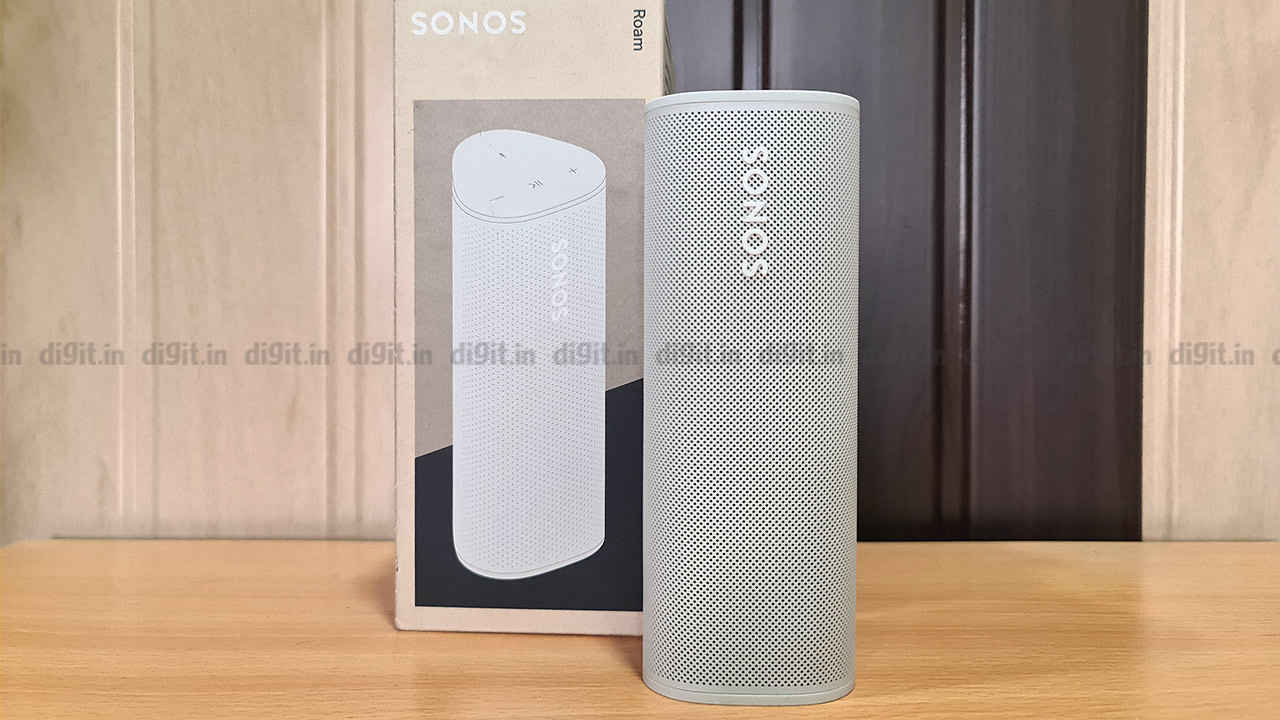
Priced at Rs 19,999, the Sonos Roam is a luxury portable speaker that impresses in more ways than one. Be it the seamless Wi-Fi + Bluetooth connectivity, powerful audio, or IP67 rugged build, the Sonos Roam justifies its price point, especially for those with an existing Sonos speaker system at home.
Sonos recently entered the Indian wireless speaker market to much fanfare. Given that the Sonos Move already impressed us tremendously and won the Digit Zero1 Award for the Best Performing Wireless Speaker of 2021, our expectations were high. However, it must be noted that this is only the company’s second attempt at a battery-powered speaker. The brand is otherwise renowned for its premium speakers that offer multi-device setups. Priced at Rs 21,999, the Sonos Roam is definitely exorbitantly priced in comparison to competitors from brands such as JBL and Ultimate Ears. However, it does come equipped with unique features such as Sonos’ multi-room setup. Aside from being Bluetooth powered, the speaker can also use Wi-Fi to work with your existing Sonos multi-room audio system. The speaker also packs a host of other features that we will discuss in this review. The ultimate question to be answered is if the Sonos Roam can set itself apart from the competition to be worth 20K. Let’s find out.
Sonos Roam: Build and design
With the Sonos Roam, the company retains the minimalist, classy aesthetic present in previous devices such as the Move. However, one major distinguishing factor is that, with the Roam, Sonos has focused much more on portability and overall ruggedness. The speaker is pretty diminutive, weighing merely 0.43 kg. In contrast, the Sonos Move, which is also a battery-powered Bluetooth/Wi-Fi speaker weighs a whopping 3kgs. The Roam, on the other hand, is easily portable and can be carried around in a bag or purse. The speaker boasts a honeycomb grille, however, it doesn’t wrap all the way around the speaker’s body so you won’t get a 360-degree sound.
It has a long, cylindrical shape that can be set upright or horizontally, as per your preference. If you place it horizontally, the button of the speaker has rubber anti-slip grips to keep it steady. The speaker comes with a feature dubbed TruePlay that automatically adjusts the sound based on the speaker’s orientation. We will speak more about TruePlay in the features section.
The lightweight build aside, the Sonos Roam is also rated IP67 dust and water-resistant which makes a worthwhile outdoors speaker, protecting it from elements such as debris and rain. You can even use the speaker in the shower without worrying about water damage. The speaker can even survive being underwater, according to the company, however, we advise against trying this out.
The control buttons are on the left side of the speaker (when placed horizontally). There are volume controls, a pause/play button, and a microphone button. The pause/play button has multiple functions and can be used to seek tracks as well. The buttons are embossed and tactile, and we prefer them over the touch buttons on the Sonos Move.
On the back of the speaker, you have the power button. Pressing and holding this button activates pairing to connect the speaker to a source device. You also have the USB Type-C charging port situated under the power button. The speaker is available in two colours – Shadow Black and Lunar White. Both look classy and aesthetically pleasing, as most Sonos devices do.
Sonos Roam: Features
The Sonos Roam comes packing a fair number of extra features that you don’t usually get with portable speakers to justify its exorbitant price. One such feature is called Sound Swap. What this feature does is, essentially allow you to “throw” the music from your Sonos Roam speaker to the nearest Sonos speaker in the area, and vice versa. Now, pressing and holding the pause/play button for one second will allow you to pair the Roam with other Sonos products and play music on the Sonos products simultaneously. Essentially, you can have a host of Sonos speakers set all over the house and pair them all together to play music all around the house at the same time. However, in order to activate the Sound Swap feature, you need to hold down the pause/play button for longer than a second.
Now, your music should start playing automatically on the closest Sonos speaker. This feature worked seamlessly in our testing phase. We were able to easily “throw” the music from the Roam to the Move and vice versa, all without having to pull out your phone. If you want the Sonos Roam to pick up the music again, simply press and hold the pause/play button on the Roam for more than a second, once again.
The speaker, as mentioned before, works on both Bluetooth v5.0 and Wi-Fi. It has something called an Automatic Switching feature that connects the speaker to Wi-Fi automatically when in range and pairs to your phone again when out of Wi-Fi range, making the transition between Bluetooth and Wi-Fi modes smooth. The speaker also supports Apple AirPlay 2, which is excellent for iOS users.
The speaker is also compatible with the Sonos app, which you will need to get started. Once you download the app, you can go to Settings > System > Add Product. Follow the instructions on the screen and you should have the speaker connected to your Wi-Fi network and your phone in no time. The app also has a product tour that explains the speaker’s controls and features. When on Wi-Fi, there’s support for AirPlay2 and other music streaming services within the app such as Spotify, YouTube Music, Apple Music, Tidal, and a few others.
Now, the speaker is also compatible with Google Assistant and Alexa in some countries, however, the feature isn’t available in India yet, which is very disappointing. This is one of the main attractions of the speaker since it basically transforms the Roam into a smart speaker (on Wi-Fi only) capable of controlling itself handsfree, controlling other smart home devices, answering questions via the web, and more. So, it’s a shame that Indian users who buy this device will not be able to access this feature, for now. We hope Sonos will implement this feature for the Indian market as soon as possible, but there’s no clear date in sight yet.
The Sonos Roam also comes with a feature called Automatic Trueplay that optimises the sound for the location or environment you’ve placed it in. As per Sonos, the speaker’s microphone detects the environment and makes periodic tuning adjustments to ensure the best possible sound. The microphone needs to be turned on to use this feature, of course, so ensure that the mic button is on. In our testing, we noticed minor tuning differences in different environments, but it isn’t very apparent. Lastly, the speaker supports Qi wireless charging and Sonos sells a wireless charging dock separately that will charge the speaker at up to 15W. You can also wirelessly charge it with your existing Qi wireless charger if you have one.
Sonos Roam: Performance
Equipped with two Class-H digital amplifiers, one tweeter, and one mid-woofer, the Sonos Roam delivers powerful audio which is surprising given its compact size. The sound isn’t 360-degree but it fills a medium-sized room with ease. The Sonos Move, however, delivers more room-filling, fuller-sounding sonic performance. But the Roam does come surprisingly close to it.
The bass response is slightly over-emphasised but that works well in open environments since you can still feel the punchiness. The bass response is hefty but still controlled enough to avoid too much auditory masking.
The mids are detailed and clear, however, the low highs are slightly weak in the mix therefore, you will lose some detail in cymbals and hi-hats. This isn’t an audiophile-worthy speaker like the Sonos Move but it is one of the best-sounding portable speakers of its size that we’ve come across. The detail in the mids and the heft of the bass easily beats competing products from JBL and Ultimate Ears, however, those speakers are also usually cheaper.
The overall representation of the music is slightly bass-biased but we prefer that in outdoor speakers. If you’re using the speaker indoors, you can EQ down the bass response slightly for it to be less jarring indoors.
As for battery life, Sonos promises up to 10 hours of wireless playtime (at moderate volume levels). We listened to the speaker at about 55-60 per cent volume and it lasted roughly 8.5 hours in our tests. The speaker can also last up to 10 days in sleep mode. The speaker automatically goes into this mode when not in use.
The speaker charges with the included cable to about 50 per cent in an hour but wirelessly charging it takes about 4 hours for a full charge. Overall, the battery life is mediocre or even lacklustre compared to some options that provide 16-24 hours while having a similar footprint.
Sonos Roam: Verdict
Priced at Rs 19,999, the Sonos Roam is a luxury portable speaker that impresses in more ways than one. Be it the seamless Wi-Fi + Bluetooth connectivity, powerful audio, or IP67 rugged build, the Sonos Roam justifies its price point, especially for those with an existing Sonos speaker system at home. Features such as Automatic Trueplay and Sound Swap are also welcome additions as well, however, the convenient voice assistant feature is absent in India, which is disappointing. Also, the battery life, at 10 hours, is pretty lacklustre at this price. Overall, the speaker is extremely impressive when it comes to sound, connectivity and build but the lacklustre battery life and missing voice assistant function are pretty significant drawbacks. Nevertheless, as a whole, the Sonos Roam is an excellent offering that should be an excellent companion both indoors and outdoors.
Dhriti Datta
Perpetually sporting a death stare, this one can be seen tinkering around with her smartphone which she holds more dear than life itself and stuffing her face with copious amounts of bacon. View Full Profile

